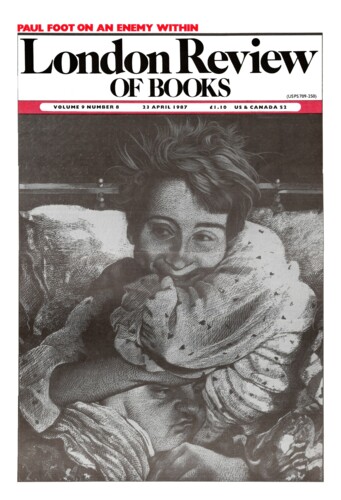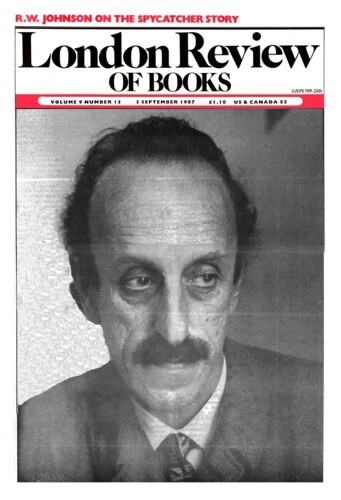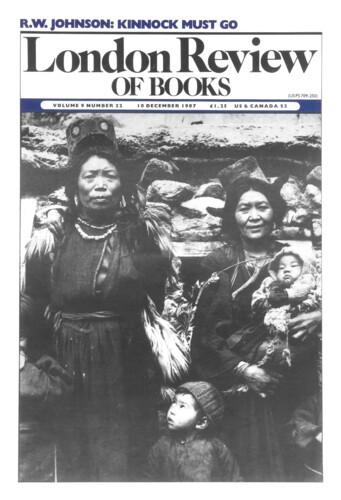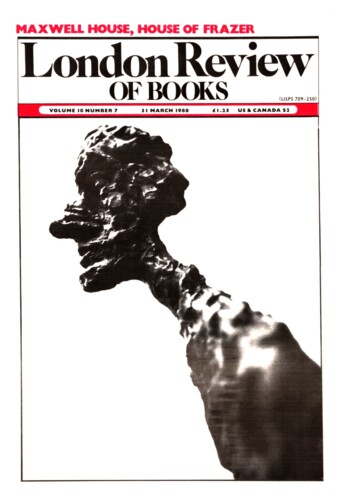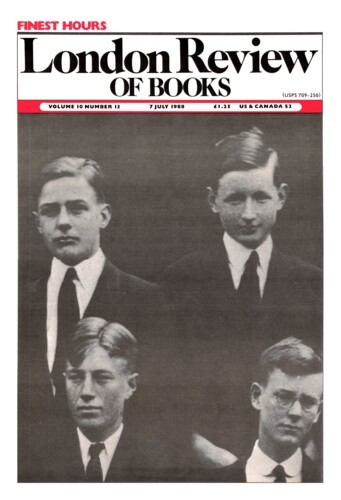I am Prince Mishkin
Mark Ford, 23 April 1987
It’s over thirty years since the angry drumbeat of Howl first assembled the dissatisfied tribes of an expanding American subculture, and gave them a name and a voice. The first reading took place at the Six Gallery in San Francisco on 7 October 1955. Michael McClure who also read that night along with Gary Snyder, Philip Whalen and Philip Lamantia, describes the poem’s impact in Scratching the Beat Surface (1982):
